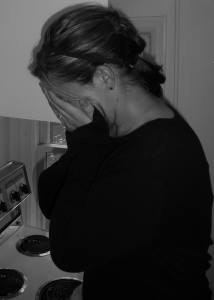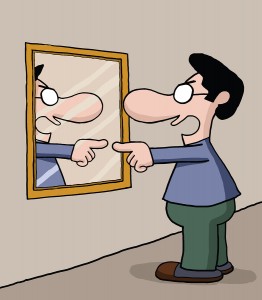 Depression can be a very crippling condition to experience despite it being classified as a mental health condition. However, there are treatments that can help, that can be provided through your naturopathic doctor. A Naturopathic doctor can use the following therapies to achieve therapeutic benefits in depression:
Depression can be a very crippling condition to experience despite it being classified as a mental health condition. However, there are treatments that can help, that can be provided through your naturopathic doctor. A Naturopathic doctor can use the following therapies to achieve therapeutic benefits in depression:
- Traditional Chinese Medicine and Acupuncture
- Botanical Medicine
- Nutrition, Diet and Lifestyle
- Hydrotherapy
- Homeopathy
- Physical Medicine
Ultimately, the goal of treatment will be to treat the root cause of disease. This will be different for each individual based on the cause of depression for that specific individual, eg nutrient deficiency vs. grief. As a result, the following list offers examples as to what goals might be developed for a treatment plan for an individual:
- Correct for deficiencies
- Reduce stress or Improve stress management
- Improve coping mechanisms
- Improve mood
- Alter lifestyle and diet to increase mood and reduce stress
- Improve gut microbiology and digestion
How can Traditional Chinese Medicine (TCM) help?
TCM views the body differently than western medicine. TCM theory suggests that when there is an imbalance in the body system, disease manifests. Each “organ” is associated with an emotion: Heart with joy and is the center of one’s personality, liver with anger, spleen with worry, lungs with grief, and kidneys with fear. As one can see, all of these organs could play a part in depression, and so, individual cases are taken, and the root cause is determined. Once a specific diagnosis is made, a treatment plan is created, and may involve using acupuncture, herbal formulas, diet, or lifestyle, all with the purpose of bringing the body back into a state of balance.
Specifically regarding acupuncture, acupuncture has been shown in some studies to be beneficial for depression and decreasing symptoms associated with depression. The following link offers one such study where benefits were received from acupuncture. http://www.i-healthbenelux.nl/pages/comp.concept/Clin_Psychiatry_2006.pdf
How can Botanical Medicine help?
Botanical formulas have similar effects to medications, often without the side effects, however this is not true for all herbs and plants. Specific herbs or plants will be selected based on their properties and combined based on the specific individual’s presentation of depression. For example, one person may need help with sleep, where as one may need help with stress, both in combination with needing help with mood. Some beneficial properties that some useful herbs may have include: nervine, anti – depressant effect, sedative and adaptogenic.
There are several plants that have more research behind them in regards to their use in depression, but other plants exist that are effective as well. Research has shown that such plants are beneficial for various degrees of depression. The following link offers one such study where the benefits of various plants were outlined: http://www.europeanneuropsychopharmacology.com/article/S0924-977X(11)00071-X/abstract
How can Nutrition and Diet help?
Depression can be aggravated or caused by various nutritional deficiencies. Therefore, it may be necessary to correct for these deficiencies in order to treat the root cause of the depression. In addition, various changes to one’s diet can help to improve mood and decrease inflammation (and thereby decrease inflammation in the body, which may contribute to the depression). Based on your specific case, several classes of action may be recommended for you, and thus foods or supplements recommended. These actions might include: anti-oxidant, mood – boosting, or anti – inflammatory.
Research has shown that not only are nutritional deficiencies associated with depressive symptoms, but specific dietary patterns can be associated with depression. For example, diets that were higher in fruits and vegetables were associated with less depressive symptoms, where as diets that were deemed lower in fruits and vegetables were more likely to be associated with depression (http://www.biomedcentral.com/content/pdf/1475-2891-8-31.pdf).
How can Hydrotherapy help?
Hydrotherapy involves alternating hot and cold water applications to achieve the following goals: promote detoxification and relaxation, increase circulation, improve immune system functioning, promote digestion, and decrease pain. Based on all of the following actions, hydrotherapy could be beneficial for depression based on different root causes. For example, if an individual is depressed because they are stressed, hydrotherapy may be beneficial by helping the individual to relax.
Hydrotherapy can be performed via a number of methods: constitutional hydrotherapy, sauna, peat bath, Epsom salt baths, or alternating hot and cold showers. These therapies may not be available at every naturopathic doctor’s clinic, but if you are interested in these therapies, they can be performed by myself, Elisha Cook, at the Robert Schad Naturopathic Clinic (416-498-9763).
Very little evidence has surfaced for the efficacy of hydrotherapy to treat depression, however, the research that has surfaced has been quite promising. The article link provided below shows a study where depressed patients were given hydrotherapy treatments ending in cold (most hydrotherapy ends in cold for approximately 30 seconds), that caused anti – depressive effects soon following treatment (http://www.sciencedirect.com/science/article/pii/S030698770700566X).
How can Homeopathy help?
Homeopathy is an energy medicine that involves finite doses of a substance that are diluted in water, which amount to a higher therapeutic dose overall. In this form of medicine, individualized remedies are chosen based on the individual’s specific symptoms and presentation. Each person requires a different remedy based on their unique presentation. Homeopathy does not interact with any medications, making it quite useful especially if you are taking other medications.
In recent studies, homeopathy has been shown to be just as effective as anti – depressant medication in the relief of depressive symptoms. In addition, other studies have shown homeopathy to be 58% effective (http://www.readcube.com/articles/10.1111%2Fj.20427166.2012.01163_5.x?r3_referer=wol&show_checkout=1).
How can Physical Medicine help?
Physical medicine involves a number of different potential therapies. These therapies might include massage, naturopathic manipulation, ultrasound, laser therapy, electroacupuncture, or Gua Sha. The general effect of these therapies includes relaxation, increased circulation, decreased pain, and decreased inflammation. Similar to what was mentioned above, depression may be decreased or alleviated based on these potential effects.
Research has shown that patients with depression may benefit from massage therapy (http://journals.lww.com/jnrtwna/Abstract/2004/03000/The_Effect_of_Acupressure_With_Massage_on_Fatigue.7.aspx).
How can Lifestyle changes help?
Various lifestyle factors can play a role in depression. By improving sleep, exercise, scheduling, and stress management, it is possible that some individuals may have reduced depressive episodes. In addition, the way that an individual thinks can influence mood. By addressing negative thought patterns, poor sleep patterns, lack of exercise, or stress management concerns, one may experience decreased depressive episodes. Naturopathic doctors are trained to help individuals through lifestyle counselling, and can use methods use as motivational interviewing or cognitive behavioural therapy to do so.
Research is quite extensive regarding exercise and its benefit on depression. Even as little as two times per week has been shown to benefit depression (http://condor.depaul.edu/hstein/NEMSSAH.pdf).
Have you benefitted from reading this blog? Know someone that would benefit as well? Share, Like, Comment, or Tweet this article, and let me know what you think.
Some of the information provided above may not be appropriate for everyone, please consult with your doctor before trying any of the above. If you are interested in Naturopathic Medicine and wanting a different approach to your health care needs, please book an appointment with Elisha Cook at the RSNC (416-498-9763), and let me help you achieve your health goals.
 Many do not realize the large impact that one’s mental health has on their physical well – being. I begin this blog by saying this, because it is so important that we understand how impactful our mental health is on our overall health. If you believe you will not get any better, chances are you will not. However, if you believe that you will get better, and hope for that, chances are you will get better or feel better overall.
Many do not realize the large impact that one’s mental health has on their physical well – being. I begin this blog by saying this, because it is so important that we understand how impactful our mental health is on our overall health. If you believe you will not get any better, chances are you will not. However, if you believe that you will get better, and hope for that, chances are you will get better or feel better overall. 

